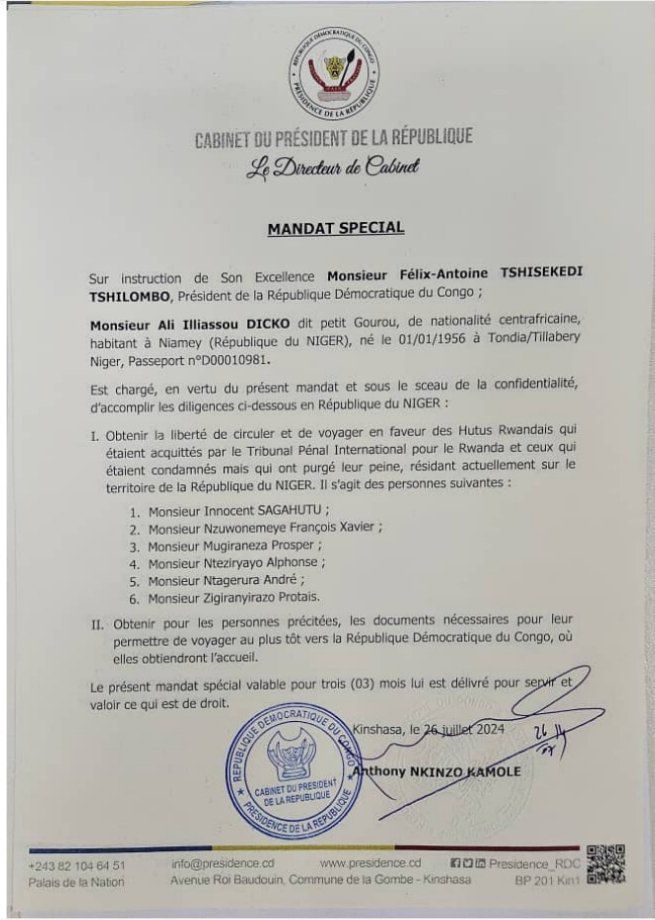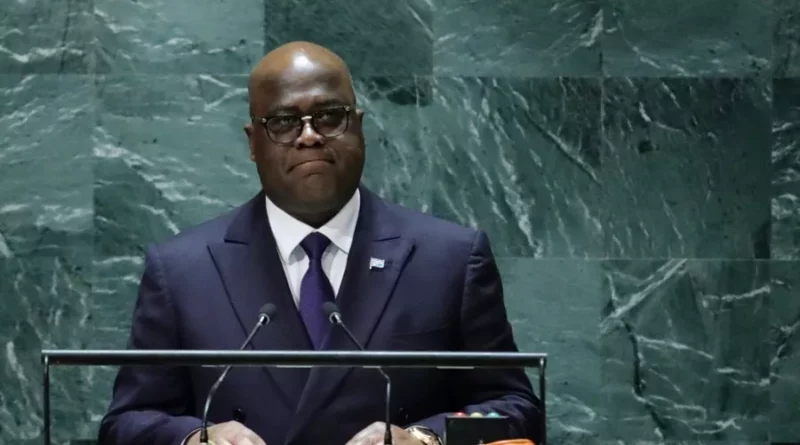Reckless Escalation: Tshisekedi’s Provocative Moves Risk Conflict with Rwanda
In a confidential document recently obtained from reliable sources, Félix-Antoine Tshisekedi, President of the Democratic Republic of Congo (DRC), continues to provoke Rwanda in a move that threatens regional peace. The document, dated July 26, 2024, reveals a mandate facilitating the relocation of several controversial Rwandan Hutus, including figures like Innocent Sagahutu and Protais Zigiranyirazo, to the DRC. These individuals, either acquitted or having served sentences for their involvement in the 1994 Rwandan genocide, are viewed by Kigali as security threats.
By facilitating their return from Niger to the DRC, Tshisekedi is deliberately challenging Rwanda’s President Paul Kagame, who has worked for decades to stabilize Rwanda following the genocide. Tshisekedi’s decision to host these figures could inflame tensions and deepen the rift between the two nations, especially since Rwanda has accused the DRC of harboring rebel groups hostile to Kigali.
Tshisekedi’s Gamble
This move is part of a larger strategy by Tshisekedi to pressure Kagame. He has previously made public statements supporting anyone willing to challenge the Rwandan regime. Hosting controversial figures further positions Tshisekedi as a vocal opponent of Kagame, even at the risk of regional instability.
The Great Lakes region, already fraught with political tensions, is highly vulnerable to renewed conflict. Rwanda and the DRC have been at odds over mutual accusations of supporting insurgent groups. Tshisekedi’s provocative stance may deepen this crisis, leading to potential military or diplomatic retaliation from Rwanda.
Kagame’s Response
Rwanda is unlikely to sit by idly. Kagame has maintained a firm stance on national security and views the resettlement of these individuals as a direct threat. Rwanda could respond through military action or covert operations, escalating tensions and risking conflict between the two nations.
Tshisekedi’s gamble is risky, both for his government and the region’s stability. International actors may be forced to intervene, as escalating conflict in the Great Lakes region could unravel years of efforts to maintain peace and security. By aligning with controversial figures, Tshisekedi risks not only domestic and regional instability but also alienation from the international community.
Tshisekedi’s decision to welcome controversial Rwandan Hutus to the DRC is a reckless move that risks destabilizing the Great Lakes region. His challenge to Kagame, while politically bold, threatens to provoke conflict that could spiral out of control. As tensions rise, the potential for a major regional crisis looms, and the stakes for both leaders—and the region—could not be higher.


